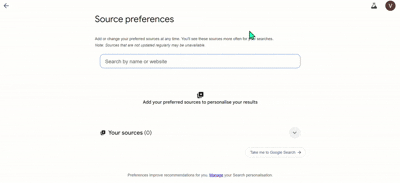
Hi friends! Today we’re tackling a crucial topic for global investors: how CRS compliance rules differ between Singapore and Mauritius in 2025. Whether you’re managing offshore accounts or exploring tax-efficient structures, understanding these regulations is non-negotiable. We’ll compare reporting thresholds, due diligence processes, and enforcement approaches in both jurisdictions. You’ll discover practical compliance strategies and learn why getting this wrong could trigger audits. Grab your chai – we’re breaking down complex tax transparency into actionable insights!
Understanding Common Reporting Standard Fundamentals
What Exactly is the CRS Framework?
The Common Reporting Standard is the OECD’s global system for automatic exchange of financial account information between tax authorities. Designed to combat tax evasion, it requires financial institutions in participating countries to identify account holders’ tax residencies and report foreign assets to local authorities. Over 110 jurisdictions have implemented CRS compliance rules since 2017, with Singapore joining in 2018 and Mauritius in 2017. The system mandates annual reporting covering bank accounts, custodial accounts, certain insurance products, and investment entities. Financial institutions face penalties up to SGD 10,000 per violation in Singapore for non-compliance, while Mauritius imposes fines up to MUR 1 million and imprisonment. The OECD continuously updates guidance, with 2024 introducing enhanced cryptocurrency reporting requirements.
Historical Context: From Tax Havens to Transparency
Before CRS, jurisdictions like Singapore and Mauritius operated under strict banking secrecy laws that attracted foreign capital. The 2008 financial crisis triggered global tax transparency initiatives, starting with the US Foreign Account Tax Compliance Act (FATCA). CRS expanded this model globally through standardized reporting. Singapore initially resisted automatic exchange but joined after pressure from G20 nations, while Mauritius embraced CRS early to shed its “tax haven” label. Both jurisdictions now participate in reciprocal exchanges with over 80 partner countries. According to the OECD’s CRS Implementation Report 2023, Singapore exchanged information with 79 jurisdictions in 2023, while Mauritius exchanged with 64.
Core Mechanics of Information Exchange
The CRS compliance rules operate through a three-step process: identification, reporting, and exchange. Financial institutions first conduct due diligence to determine tax residencies using self-certification forms and electronic record checks. Account balances and financial activity are compiled into XML reports submitted to local tax authorities (IRAS in Singapore, MRA in Mauritius). Singapore’s Inland Revenue Authority then exchanges this data annually with partner jurisdictions by September 30, while Mauritius follows a similar timeline. Reportable accounts include those held by individuals and entities with tax residencies outside the financial institution’s jurisdiction. Crucially, both jurisdictions require reporting even when accounts hold minimal balances – Singapore’s threshold is USD 1,000,000 for pre-existing entity accounts.

Singapore CRS Regulations: 2024 Updates
Enforcement Mechanisms and Reporting Timelines
Singapore’s Inland Revenue Authority (IRAS) has significantly enhanced enforcement of CRS regulations in 2024. Financial institutions must submit annual reports by May 31st covering the previous calendar year – a deadline strictly enforced with penalties. The 2024 updates introduce mandatory electronic filing through IRAS’ myTax Portal with enhanced validation rules. Failure to report can trigger penalties up to SGD 10,000 per violation plus potential criminal charges. IRAS now conducts targeted audits of financial institutions with high percentages of undocumented accounts. According to IRAS’ 2023 Annual Compliance Report, they imposed SGD 4.2 million in penalties for CRS violations last year. The authority also launched a new online learning portal with compliance modules for bank staff.
Due Diligence Requirements Deep Dive
Singapore’s due diligence framework categorizes accounts as pre-existing (opened before Jan 1, 2017) or new. For individual accounts, financial institutions must electronically screen accounts holding over USD 1 million using indicia like mailing addresses and telephone numbers. Entity accounts require verification of controlling persons through corporate documents and beneficial ownership registers. Financial institutions must obtain self-certifications for all new accounts immediately upon opening. The 2024 amendments require enhanced verification for cryptocurrency accounts and family offices. Singapore exempts certain accounts including retirement/pension accounts, term life insurance, and accounts held by listed entities. Penalties for inaccurate self-certifications now extend to account holders themselves.
Non-Reporting Financial Institutions and Exemptions
Not all Singaporean entities fall under CRS compliance rules. Exempt categories include governmental entities, international organizations, and central banks. Singapore also exempts specific low-risk accounts: retirement plans with annual contributions under SGD 35,000, escrow accounts, and dormant accounts with balances below SGD 1,000. Trusts with Singaporean resident trustees must report unless qualifying as non-financial entities (NFEs). The Monetary Authority of Singapore (MAS) maintains a public register of Reporting Singaporean Financial Institutions (RSFIs). Family offices managing under USD 10 million assets now qualify for exemption under new 2024 guidelines, provided they meet strict substance requirements.
Mauritius Tax Compliance Framework Analysis
Implementation Structure and Reporting Calendar
Mauritius implemented CRS through the Mauritius Revenue Authority (MRA), with 2024 bringing significant procedural changes. Financial institutions must file CRS reports by July 31st using the MRA’s Electronic Data Transmission System (EDTS). The MRA exchanges information with partner jurisdictions by September 30th annually. Mauritius financial institutions face penalties of MUR 50,000 daily for late submissions, capped at MUR 1 million per report. The 2024 framework introduces mandatory reporting for e-money accounts and prepaid cards with balances exceeding USD 50,000. According to MRA’s 2023 CRS Compliance Update, 98% of reporting institutions met deadlines last year, with 12 audits resulting in MUR 24 million in penalties.

Entity Classification Nuances and Procedures
Mauritius applies distinct entity classification rules under CRS compliance rules. Financial institutions include banks, custodians, investment entities, and certain insurance companies. Entities qualify as Non-Financial Entities (NFEs) if less than 50% gross income comes from financial activities. Mauritius requires special due diligence for Global Business Companies (GBCs), requiring disclosure of beneficial owners to the Financial Services Commission (FSC). Controlling persons are defined as individuals owning over 25% interest in entities – lower than many jurisdictions. Passive NFEs with primarily investment income face enhanced scrutiny. The 2024 updates mandate that all GBCs maintain physical offices in Mauritius and undergo annual substance audits.
Enforcement Trends and Audit Focus Areas
The MRA has increased CRS enforcement resources by 40% in 2024, establishing a dedicated Financial Account Reporting Unit. Audit priorities target investment funds, private banking relationships, and corporate service providers. Mauritius now uses AI-powered risk scoring to identify non-compliant institutions. Penalties range from monetary fines to license revocation for repeated violations. The MRA conducts pre-filing reviews of draft submissions and offers voluntary disclosure programs until March 31st annually. High-risk indicators triggering audits include high volumes of undocumented accounts, inconsistent tax residency declarations, and failure to report controlling persons. Mauritius signed the OECD’s CRS Multilateral Agreement in 2018, enabling broader data sharing.
Comparative Offshore Account Rules: Singapore vs Mauritius
Reporting Thresholds and Timelines
Critical differences emerge in reporting thresholds between these jurisdictions. Singapore requires reporting for individual accounts with balances exceeding USD 150,000, while Mauritius sets a higher USD 250,000 threshold for pre-existing individual accounts. For entity accounts, Singapore reports those holding over USD 250,000, whereas Mauritius applies a USD 1 million threshold. Singapore’s May 31st deadline is significantly earlier than Mauritius’ July 31st cutoff. Both jurisdictions require nil returns when no reportable accounts exist. Singapore mandates electronic filing only, while Mauritius still accepts physical submissions with prior approval. The table below highlights key differences:
| Parameter | Singapore | Mauritius |
|---|---|---|
| Individual Account Threshold | USD 150,000 | USD 250,000 |
| Entity Account Threshold | USD 250,000 | USD 1,000,000 |
| Reporting Deadline | May 31 | July 31 |
| Penalty Structure | SGD 10,000 per violation | MUR 50,000 daily (capped at MUR 1M) |
Due Diligence Timelines and Procedures
Singapore requires completion of due diligence for pre-existing high-value individual accounts by December 31, 2018, while Mauritius extended this to December 31, 2020. For new accounts, Singapore mandates immediate collection of self-certifications, whereas Mauritius allows 90 days for documentation. Both jurisdictions require periodic reviews: Singapore every 3 years, Mauritius every 5 years. Singaporean institutions must electronically verify tax identification numbers through IRAS’ portal, while Mauritius relies on documentary verification. For controlling persons, Mauritius requires identification for all entity accounts, while Singapore exempts listed entities and governmental bodies. The CRS compliance rules regarding politically exposed persons are stricter in Singapore, requiring enhanced due diligence regardless of account balance.
Penalty Regimes and Banking Secrecy Evolution
Singapore imposes stricter penalties with possible imprisonment for willful non-compliance under Section 105M of the Income Tax Act. Mauritius focuses on monetary penalties but can suspend financial licenses for repeated violations. Singapore has completely abolished banking secrecy for tax purposes, while Mauritius retains limited confidentiality for non-CRS matters. Both jurisdictions allow voluntary disclosures to reduce penalties: Singapore’s Program (VDP) reduces penalties by 50-100%, Mauritius offers 100% waiver if disclosed before audit initiation. Criminal sanctions apply in both jurisdictions for fraudulent submissions. Singapore has prosecuted 14 institutions for CRS violations since 2020, while Mauritius has pursued criminal charges against 3 institutions according to OECD peer reviews.
2024 CRS Reporting Requirements Deep Dive
Mandatory Information Fields and Documentation
The OECD’s 2024 CRS XML Schema v2.0 introduces new mandatory fields for both Singapore and Mauritius reporting. Financial institutions must report: account holder name/address/TIN, account number, account balance/value as of December 31st, and financial institution details. For entity accounts, controlling persons’ information including passport numbers and dates of birth must be included. Singapore now requires reporting of cryptocurrency wallet addresses for accounts holding digital assets. Mauritius mandates disclosure of account closure dates and reasons. Both jurisdictions require retention of self-certification forms and supporting documents for 6 years. The 2024 updates require reporting of joint account holder percentages and enhanced currency conversion documentation.
Tax Residency Self-Certification Processes
Self-certification forms (CRS forms) are the cornerstone of CRS compliance rules. Singapore mandates use of IRAS-prescribed Form CRS-S for individuals and Form CRS-C for entities. Mauritius requires Form MRA CRS-1. Both jurisdictions require signed certifications containing tax identification numbers and jurisdictions of residence. Financial institutions must validate reasonableness of certifications within 90 days using electronic databases or documentary evidence. The 2024 updates require recertification after any change in account holder circumstances. Singapore now requires financial institutions to verify TINs through IRAS’ API portal in real-time. Mauritius accepts self-declaration but imposes penalties for false certifications. Complex cases like dual residency require disclosure of all tax residences and explanation of treaty position.
Technical Specifications and Common Errors
The OECD CRS XML Schema v2.0 introduced in 2024 requires strict adherence to technical specifications. Common rejection reasons in Singapore include incorrect TIN formats, invalid country codes, and missing controlling person information. Mauritius rejects files with inconsistent currency conversions or missing declarations for dormant accounts. Singapore reported 37% of first-time submissions contained critical errors in 2023 according to IRAS data. Both jurisdictions require UTF-8 encoding and file sizes below 500MB. Financial institutions must include Reporting FI IN (Singapore UEN, Mauritius MRA number) and GIIN where applicable. The 2024 schema adds new data points: crypto asset indicators, pooled account flags, and enhanced controlling person role classifications (settlor/beneficiary/director).
Navigating Foreign Account Disclosure Challenges
Voluntary Disclosure Program Comparisons
Both jurisdictions offer voluntary disclosure programs (VDP) for unreported foreign accounts but with key differences. Singapore’s VDP requires full disclosure before notification of audit and offers 100% penalty waiver for unintentional errors. Mauritius’ program provides up to 100% penalty reduction if disclosure occurs before MRA initiates verification. Singapore allows anonymous pre-disclosure consultations through tax representatives, while Mauritius requires formal submissions. Singapore processes VDP applications within 4 months, Mauritius within 6 months. Both exclude cases involving willful evasion or ongoing investigations. According to the OECD’s Voluntary Disclosure Review 2023, Singapore processed 2,384 disclosures in 2022, Mauritius handled 1,017. Post-disclosure, both jurisdictions issue binding assurance letters.
Document Retention Best Practices
Robust documentation is critical for defending CRS positions during audits. Singapore requires retention for 6 years from submission date, Mauritius mandates 7 years. Required documents include: signed self-certifications, verification evidence, account opening documents, and correspondence regarding tax residency. Electronic storage must ensure integrity and accessibility throughout retention period. Singapore requires time-stamped audit trails for electronic validations. Mauritius accepts scanned copies provided they’re certified. Both jurisdictions require retention of nil return documentation proving no reportable accounts. For closed accounts, Singapore mandates retention until 6 years after closure, Mauritius requires 7 years. The 2024 updates require encryption of personally identifiable information during storage and transmission.
High-Risk Indicators and Technology Solutions
Tax authorities focus on specific red flags: accounts with multiple tax residencies, inconsistent address information, and frequent international transfers. Accounts with nominee shareholders or complex ownership chains attract scrutiny in both jurisdictions. Technology solutions like blockchain-based verification and AI-powered document analysis help institutions comply. Singapore’s IRAS recommends using their API for real-time TIN validation. Mauritius launched the MRA Connect portal for automated submissions. Both jurisdictions accept third-party compliance software certified by local authorities. Essential features include: automated document collection, electronic signatures, risk scoring algorithms, and audit trail generation. The Monetary Authority of Singapore provides a CRS Technology Solution Guide listing approved vendors.
FAQs: foreign account disclosure Qs
We’ve covered essential ground on Singapore and Mauritius CRS compliance rules – from reporting thresholds to penalty risks. Remember, Singapore’s May 31 deadline approaches faster than Mauritius’ July cutoff, so prioritize accordingly. Both jurisdictions have significantly enhanced enforcement, making compliance non-negotiable. If managing accounts in either location, conduct immediate reviews of your documentation processes. Consider engaging tax professionals for complex structures. Found this helpful? Share with fellow investors facing international tax compliance challenges! Subscribe below for monthly offshore strategy updates.











